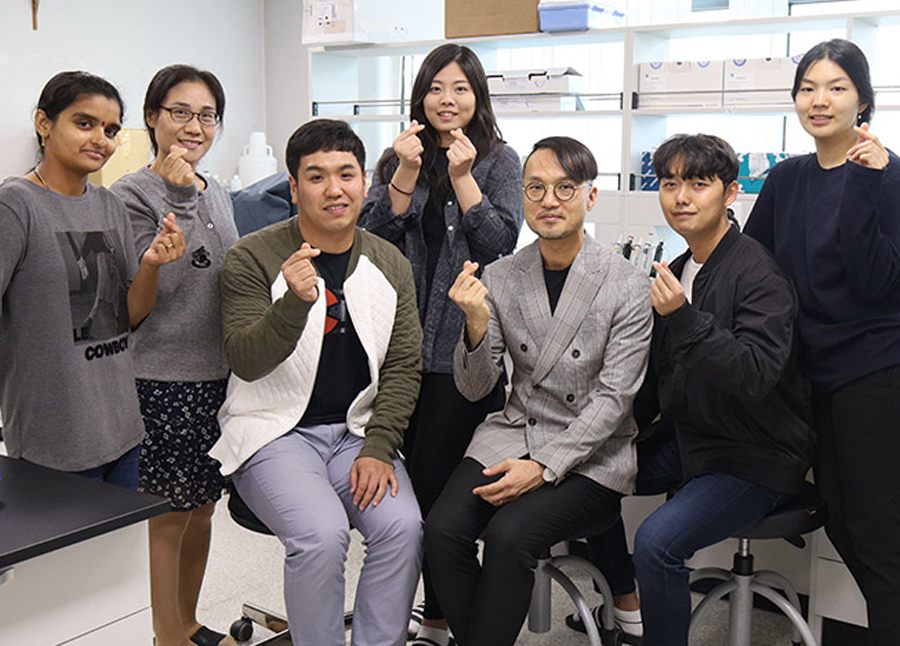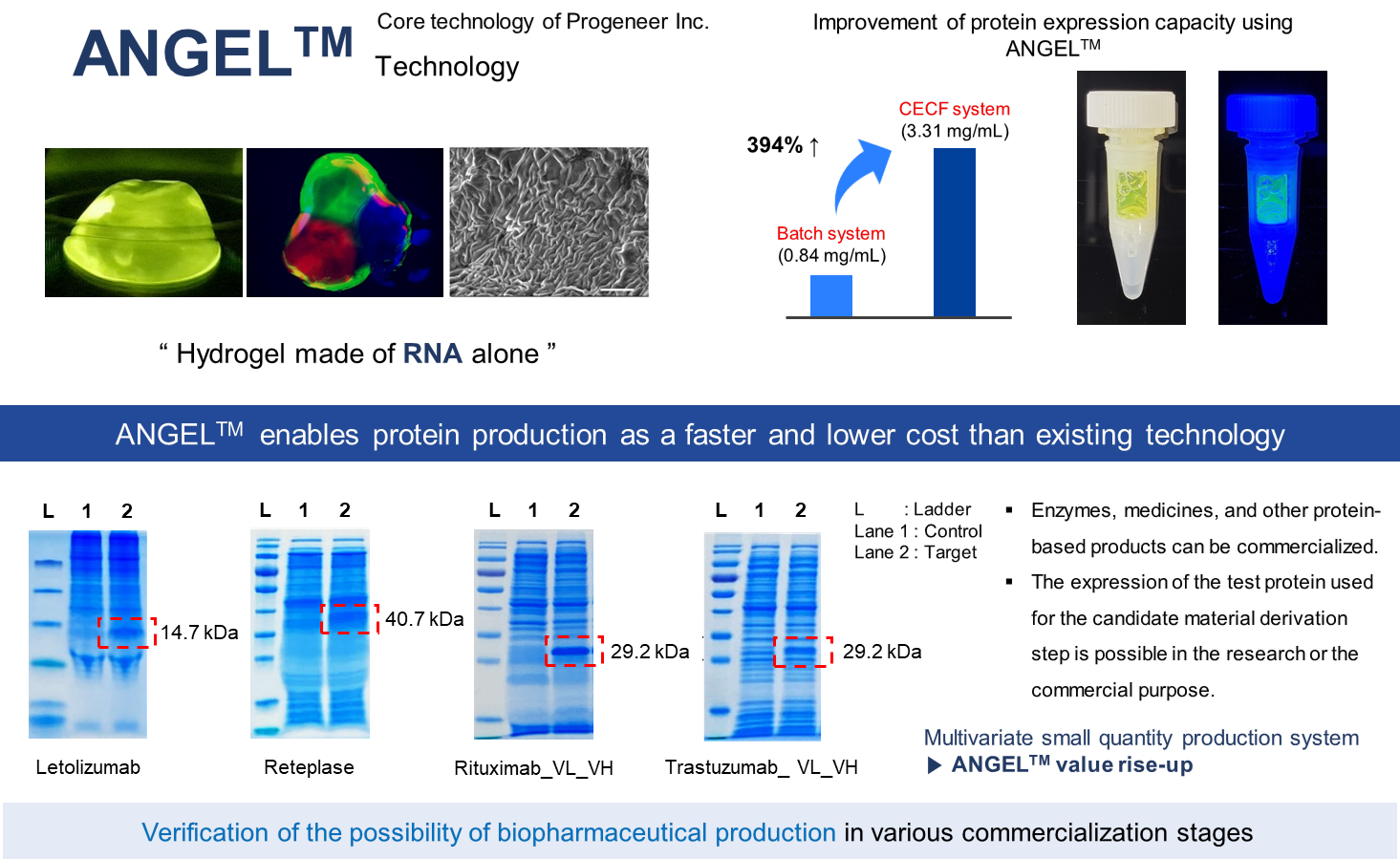"In vitro functional protein expression using messenger RNA hydrogel" by Prof. SoongHo Um's team
- enc
- Hit5387
- 2022-04-28
Professor Soong Ho Um's research team in the School of Chemical Engineering has published the "In vitro functional protein expression using messenger RNA hydrogel" in collaboration with a nucleic acid nanotechnology company, Progeneer incorporation
- It makes RNA itself overcome RNA intrinsic limitations such as precise structure formation and stability
- It mass-produces the desired functional proteins at low costs within a short period of time
- It is published in the top-classified, world-renowned journal, Advanced Materials (IF = 30.849)

On April 5th, a research paper titled “Protein-encoding free-standing RNA hydrogel for sub-compartmentalized translation”, written by Professor Soong Ho Um in the School of Chemical Engineering, was published online in the Advanced Materials (IF =30.849) as a cover paper in recognition of its excellence.
The research study was conducted in collaboration with Progeneer Inc., a domestic bio-venture company. And the results are expected to be used in various biopharmaceutical fields such as cytokine for several medical uses and personalized new drugs because of the outstanding advantages of being able to produce large amounts of functional proteins in a short time.
The team created a new messenger RNA hydrogel structure with physiological and chemical functions by applying the rolling circle transcription and regularly arranging nucleic acid quadruple helical structures based on nucleic acid nanotechnology.
It is well known that RNA plays a very pivotal role in the regulation and expression of biological activity in vivo, but it is unstable and not easy to produce the desired design. In a situation where these serious and essential limitations are pointed out, this study suggests a wise solution. The team’s research has proved that the biological regulator role of natural RNAs such as enzyme catalyst action and protein synthesis is actually possible outside of cells through bio-inspiration. This technology has exactly reproduced the ‘Spatiotemporal RNA-derived RNA phase transformation’ that occurs in the translation process of the central dogma process, the central principle of life, and thus enabled protein mass-production through gel internal compartmentalization.
Since the 1950s, by “cell-free protein expression” technology, protein production could be done outside the cell. With the rapid development of the modern biopharmaceutical market, this is receiving global attention. This study has also contributed to significantly maximizing the efficiency, which is a fatal disadvantage of cell-free protein expression technology. Also, the gel form of RNA is made possible for the first time and the RNA having the various functions relatively secures the high mechanical property. This suggests the possibility of developing new materials equipped with genetic information. The research’s universal applicability, which solves the fundamental issue of RNA and contributes to the central principle of life, is expected to create various applied technology to pioneer in a new area of research.

[Research Overview] Examples of massproduction of functional proteins using RNA hydrogels technology
In present, Progeneer CEOs, Chul Kim and Young Ku Lee are directly applying the technology to its personalized anti-cancer vaccine project (ProV-001) and achieving a functional protein synthesis pipeline.
Professor Um sad: "This research is highly appraised as the first for human-being designing and producing an "RNA factory" combined with cell-free protein expression technology, establishing the pinnacle of advanced bio-inspiration technology. Usually, all proteins are produced effectively by relying on natural cells, which take a long time. This process requires an expensive production system, but in this study, we prove to mass-produce desired functional proteins within a short time and at a low cost. Many renowned researchers in this field have recognized this research's innovation and industrial availability.This technology's fast development of antibody treatment will lower the actual clinical entry threshold and contribute significantly to the development of patient-specific care. "
The research was pulished on line on world-renowned journal "Advanced Materials"(IF=30.849)as cover page on April 5th
※ Research Article title : Protein-encoding Free-standing RNA Hydrogel for Sub-compartmentalized Translation



